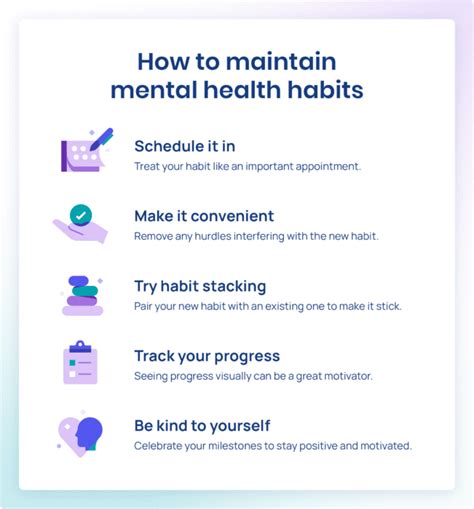10 Simple Daily Habits for Boosting Your Mental Health

In today’s fast-paced world, maintaining good mental health is more important than ever. Stress, anxiety, and overwhelming workloads can easily take a toll on your emotional well-being. However, the good news is that small, consistent changes in your daily routine can significantly improve your mental health over time. Here are 10 simple daily habits that can help boost your mood, reduce stress, and improve your overall mental well-being.
Start Your Day with Gratitude
Gratitude is a powerful tool for improving mental health. Taking just a few minutes each morning to reflect on the things you're grateful for can shift your focus from what’s wrong to what’s going right. This simple habit helps create a positive mindset and can increase feelings of happiness. Try writing down three things you're grateful for each morning to set a positive tone for the day.
Practice Deep Breathing or Meditation
Mindful breathing or meditation is one of the most effective ways to reduce stress and improve mental clarity. By focusing on your breath and being present in the moment, you can reduce feelings of anxiety and promote relaxation. Even just five minutes of deep breathing in the morning or before bed can help you feel more grounded and calm.
Move Your Body Every Day
Physical activity isn’t just good for your body—it’s also essential for your mental health. Exercise releases endorphins, which are chemicals that promote feelings of happiness and reduce stress. Whether it’s a brisk walk, yoga, or a quick workout, aim to move your body for at least 20-30 minutes each day. You’ll feel better physically, and your mind will thank you.
Stay Hydrated and Eat Nutritious Foods
What you put into your body can have a profound impact on your mood and energy levels. Eating a balanced diet rich in vegetables, fruits, whole grains, and healthy fats helps your brain function at its best. Avoiding excessive sugar, caffeine, and processed foods can help maintain stable blood sugar levels and prevent mood swings. Don’t forget to drink plenty of water throughout the day—dehydration can cause fatigue and irritability.
Get Enough Sleep
Sleep is the foundation of good mental health. Inadequate sleep can impair your ability to think clearly, manage stress, and regulate your emotions. Aim for 7-9 hours of quality sleep each night. Create a relaxing bedtime routine by limiting screen time, drinking a cup of herbal tea, or reading a book before bed to signal to your brain that it’s time to wind down.
Connect with Others
Social connection is vital for mental well-being. Even if you're busy, make it a point to connect with a friend, family member, or colleague each day. A quick text, phone call, or in-person chat can help combat feelings of loneliness and isolation. Positive social interactions release oxytocin, a hormone that promotes feelings of happiness and connection.
Set Realistic Goals
Setting small, achievable goals every day can boost your sense of accomplishment and give you a sense of purpose. Whether it’s completing a work task, organizing a drawer, or finishing a book, accomplishing something, no matter how small, can improve your confidence and overall mood. Break larger tasks into smaller, manageable steps to avoid feeling overwhelmed.
Practice Self-Compassion
We all have moments of self-doubt and negative thoughts, but practicing self-compassion can help you overcome these feelings. Treat yourself with the same kindness and understanding that you would offer a friend. When you make a mistake or face a setback, remind yourself that it’s okay to not be perfect and that everyone experiences challenges. This can help prevent feelings of guilt and frustration from taking a toll on your mental health.
Spend Time Outdoors
Nature has a calming effect on the mind and body. Spending time outside, whether it’s a walk in the park or simply sitting on your balcony, can reduce stress and improve mood. Natural light helps regulate your circadian rhythm and boosts vitamin D levels, which are essential for mental health. Try to spend at least 15-30 minutes outdoors each day to reap these benefits.
Engage in a Hobby or Creative Activity
Engaging in activities you enjoy can be a great way to relieve stress and enhance your mental well-being. Whether it's painting, writing, gardening, or playing a musical instrument, hobbies provide an outlet for self-expression and creativity. This can help you feel more relaxed and connected to yourself. Even if you only have 15-30 minutes a day, dedicating time to something that brings you joy can make a big difference.